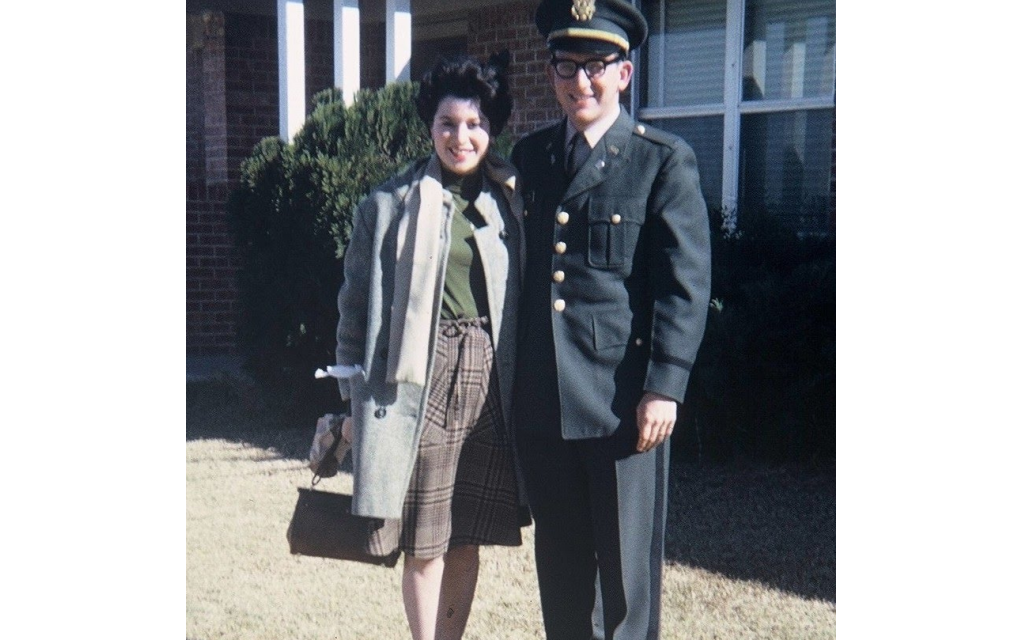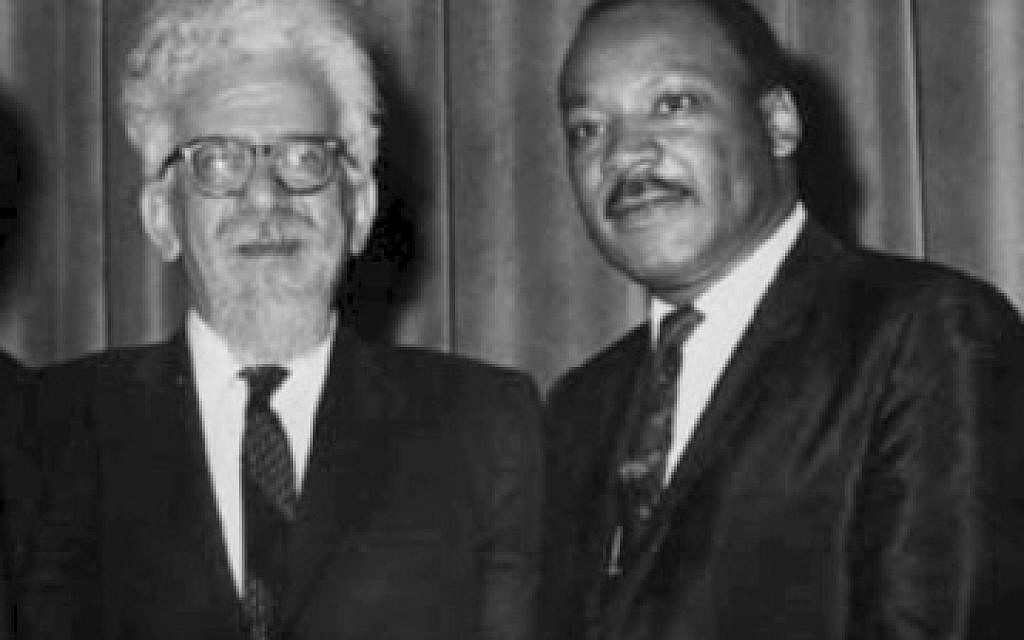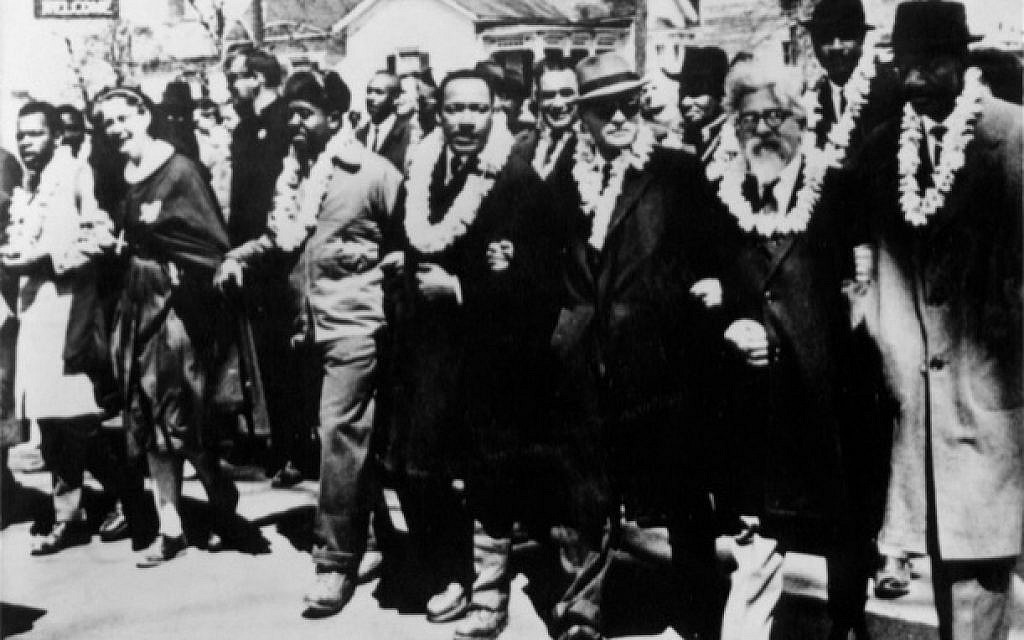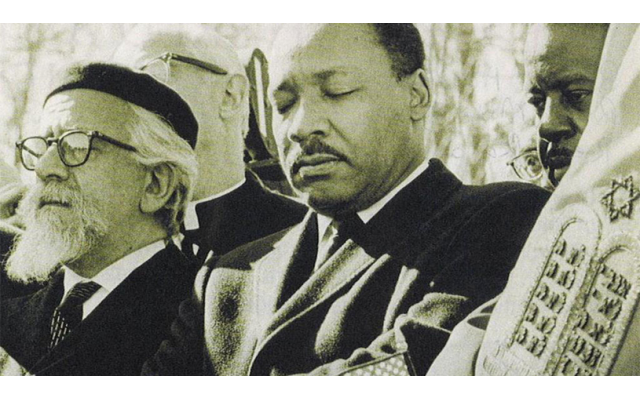What MLK Means to Us
It is particularly important to reflect upon why King’s legacy means so much to Jews around the world, as well as in Atlanta.
This week, many people across America are celebrating Dr. Martin Luther King Jr.’s powerful legacy through prayers, lectures and memories. But it is particularly important to reflect upon why King’s legacy means so much to Jews around the world, as well as in Atlanta.
According to Rabbi David Geffen, a native of Atlanta, the hanging of Leo Frank sent a strong message to the Jewish community that they were not equal. Many Jews lived their lives in fear.
In 1958, The Temple in Atlanta was bombed by white segregationists. Many colleges and universities across America blatantly discriminated against Jewish students by using a quota system. From 1948 to 1961, Emory University’s Dental School used quota systems to keep qualified Jewish students out. The university made a public apology in 2012.
By the time King became the leader of the civil rights movement, many Jews had been suffering in silence and frustration. King’s visionary dream energized many Jewish people to take action to help end discrimination and to help make America a more perfect union for all its citizens regardless of race or religion.
Rabbi Geffen can attest that his knowledge and appreciation of King’s remarkable history grew only after he left Atlanta and moved to Israel.
As a boy growing up in Atlanta, Geffen could visibly see that life for African-Americans was harsh.
“I would play with African-American boys my age who lived in shanties. I never played with the girls. A fence at the end of my grandparent’s backyard at 593 Washington Street opened to a dirt street lined with shanties of African-American families. That fence was quite a defining line for me in my life,” Geffen said.
During the Jim Crow era, it was mainly Jewish businessmen who gave African-Americans employment and buying power, but the majority of Jews kept to themselves in their tight-knit communities.
Geffen graduated from Henry Grady High School. He received his bachelor’s degree from Emory University and later received a doctorate. Geffen decided he wanted to become a rabbi to help serve and to enrich the knowledge of his community. In 1963, he went to seminary school in New York, but then the Vietnam War broke out and he signed on as a military chaplain.

Geffen’s cousin, Peter Geffen, was heavily involved in the civil rights movement and voter registration. But Rabbi Geffen admits that he wasn’t in the streets protesting for civil rights or going to jail, like his cousin.
Peter Geffen was one of those young students during the 60s who adored and admired King. In 1965, he began working with King and the Southern Christian Leadership Council to register African-American voters. Many Jewish students from the northern states went South, and marched and got spat on, beat up, cursed and called names.
Some Jewish students and civil rights workers, such as Andrew Goodman and Michael Schwerner, were murdered while fighting for freedom. Andrew Goodman was Peter Geffen’s classmate.
King’s inclusive leadership style helped Jews and African-Americans forge lifelong bonds.

“Wes Geary was an African-American chaplain from Texas,” Rabbi Geffen said. “We became really good friends and we talked about our families and race during the Vietnam War. It was the first real friendship that I had formed with an African-American.
“In 1965, I was a volunteer chaplain in the U.S. Army, and I invited him to the seder and asked him to sing a song. In a deep voice, he sang “Go Down Moses.” Everybody in the service was in awe. Here you had an African-American and Jews all experiencing this shared history. That was one of the most powerful moments in my life.”
The Temple’s Rabbi Jacob Rothschild and King became very close friends during the 50s and 60s. In 1965, Rothschild organized a banquet for King in honor of his Nobel Peace Prize. Rothschild presented King with a commemorative Steuben bowl. The banquet was Atlanta’s first interracial banquet event.
Rabbi Abraham Heschel, the renowned Polish-born Jewish theologian from New York, said that “King was the voice of G-d in our time.” Heschel joined King at many important civil rights events, including the Selma to Montgomery march.

In 1968, James Earl Ray assassinated Dr. King. For many Jews, the sadness and anger that they felt after King’s death was too strong to put into words. Many Jews feared that King’s visionary dream would die with him. However, many Jews, young and old, carried King’s dream deep in their hearts. Some became our future lawyers, doctors, rabbis, and teachers who changed America through kindness, justice and love.
In 1976, Geffen and his wife and three children moved to Israel and made aliyah, But King’s legacy never left his heart.
“King was a prophet. He was able to bring down a strong segregated system through nonviolent actions. It took a tremendous love for others to be able to do that. That was so important to me,” Geffen said.
In 1986, Geffen was part of the ceremony to name a street near Liberty Park in Jerusalem after King.
“I was there with the Prime Minister of Israel Yitzhak Shamir and Rabbi Alvin Sugarman [of The Temple]. It was a surreal moment for me. That ceremony proved how far-reaching and important King’s legacy was becoming to Jews around the world.”.

The Rev. Martin Luther King Jr. Forest in Israel’s southern Galilee, sponsored by JNF and honoring MLK and Jewish activists such as Michael Schwerner and Andrew Goodman, who were murdered in 1964 while volunteering to register African-American voters in Mississippi.
On Jan. 21, many Jewish day schools across America celebrated Tu B’ Shevat, the New Year for Trees, and the MLK holiday on the same day.
Geffen believes that King made life better for millions of people, especially African-Americans. He showed the entire world how to succeed in the face of adversity. He did not just give speeches. He answered questions.
King’s legacy is even more pivotal in today’s hostile climate. As in decades ago, the future generation of Jews will defeat hostility, and some will do so by holding King’s moral standard up against hate, anti-Semitism and division.




comments